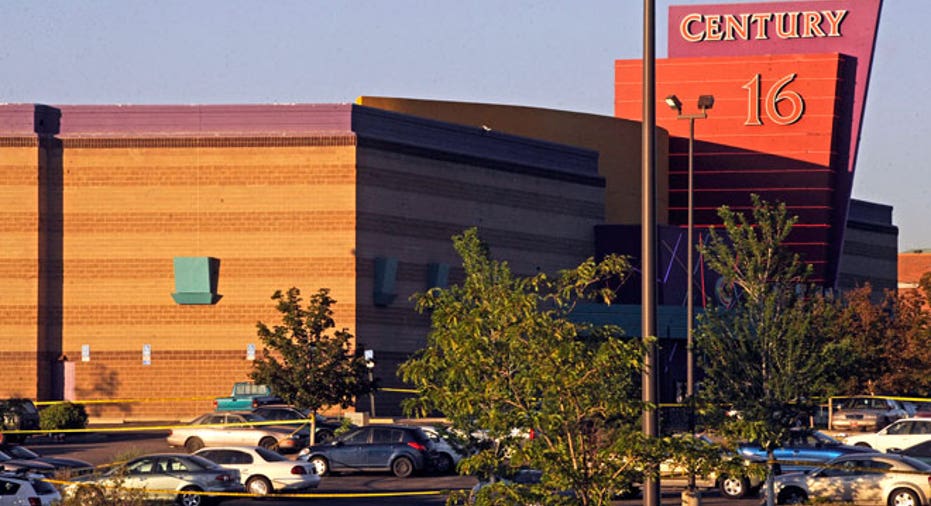We’ll Almost Never Know Why

When I was 17, oh so many years ago, I totaled a car. I was pulling out of the library in my town with my high school best friend and didn’t see a Cadillac speeding around the bend of the four-lane road. The impact on my little AMC Gremlin driver’s side was startling and the damage was vast.
It was, of course, my fault. To this day I don’t know how I missed seeing that car. But blessedly my friend wasn’t hurt at all and I had a minor scratch on my nose from shattered glass. My father was angry at me until he saw the car; then he was relieved I was alive.
Something a police officer said to me that day has stuck with me.
“Miss, if you’d been wearing your seatbelt, you would have likely been critically injured,” he said, referring to the fact that I’d been thrown to the passenger side and therefore avoided much of the impact.
Just to be clear, he said if I HAD been wearing one, I’d have been worse off. Wearing seatbelts at that time was not required by law, so naturally as a teen-aged know-it-all, I was way too cool to put one on.
While I never took that as a reason to avoid seatbelts moving forward – in fact, I was a stickler on them well before it became the law to wear them – I did come away with another message. There is, for the most part, no hard and fast rule that will keep us or our loved ones safe 100% of the time.
This message came back to me ever so poignantly with our national focus on the theatre shooting in Colorado last week. Through the din of shouted agendas for or against guns or violence in games and films, and the questions about potential bullying and abuse in the gunman’s background, all I could think was, “No matter how much we seek answers, we’ll never know why one person was hurt while another was spared.”
Anyone who knows me can tell you I over-think things much of the time and I certainly understand our human penchant for wanting answers, but most of the time there’s really very little we can do to stay ahead of bad things happening.
In the majority of cases, a seatbelt will help keep you alive. In my case, it might not have. In most cases, going to work is not going to put your life in jeopardy. If you worked near the top of the World Trade Center on September 11, 2001, it did. In most cases, visiting your Congresswoman at a shopping center on a nice day is not going to end in tragedy. Last year in Arizona, it did.
I can’t and won’t begin to tell people who have lost loved ones in Aurora how to grieve. The emotional path ahead is long and devastating for so many survivors of that horrific night.
But those of us who are watching from afar, who want to pin it on this or that so we can feel better about understanding it would do well to sit tight and take a deep breath. Virtually nothing you do is going to prevent something like that from happening. It’s just not.
Having been in New York on 9/11, blessedly about 25 blocks away from downtown, I was scared to get on a bus or subway for months. I was sure “they” were still coming at us. I found out you can go a bit batty trying to guess whether the bus or the subway is more likely rigged to blow. Bus. Subway. Bus. Subway. Oh, heck with it, I’ll walk.
Slowly, eventually, it sank in that there’s no way to head off the crazy. There just isn’t.
We always want to understand, though, don’t we?
Ask anyone who has cancer and they will tell you that many of the people who show empathy want details because they want to learn how to stave it off. We’ve all heard this, right? “Oh, you didn’t have a regular mammogram. No wonder.” Or, “Did he smoke? Oh, well that explains it.” Whew.
Don’t try to tell these folks that the person who eats organic, walks every day and has regular checkups has cancer. That will send them over the deep end.
As we process what happened in Colorado, professional hand-wringing will do nothing. I don’t know that it even helps the ones hurting. Let them go within and deal with the heavy fog that is grief and then try to heal and move on. And maybe stop judging how they grieve and for how long so they don’t have to deal with that extra layer of aggravation at a difficult time. When we know people hurting in these situations, often the best thing we can do is listen and listen some more.
And know, as we forge on, that in most cases going to the movies will be enjoyable and relaxing. Not on one awful, incomprehensible night in July. But in most cases.
Nancy Colasurdo is a practicing life coach and freelance writer. Her Web site is www.nancola.com and you can follow her on Twitter @nancola. Please direct all questions/comments to FOXGamePlan@gmail.com.



















